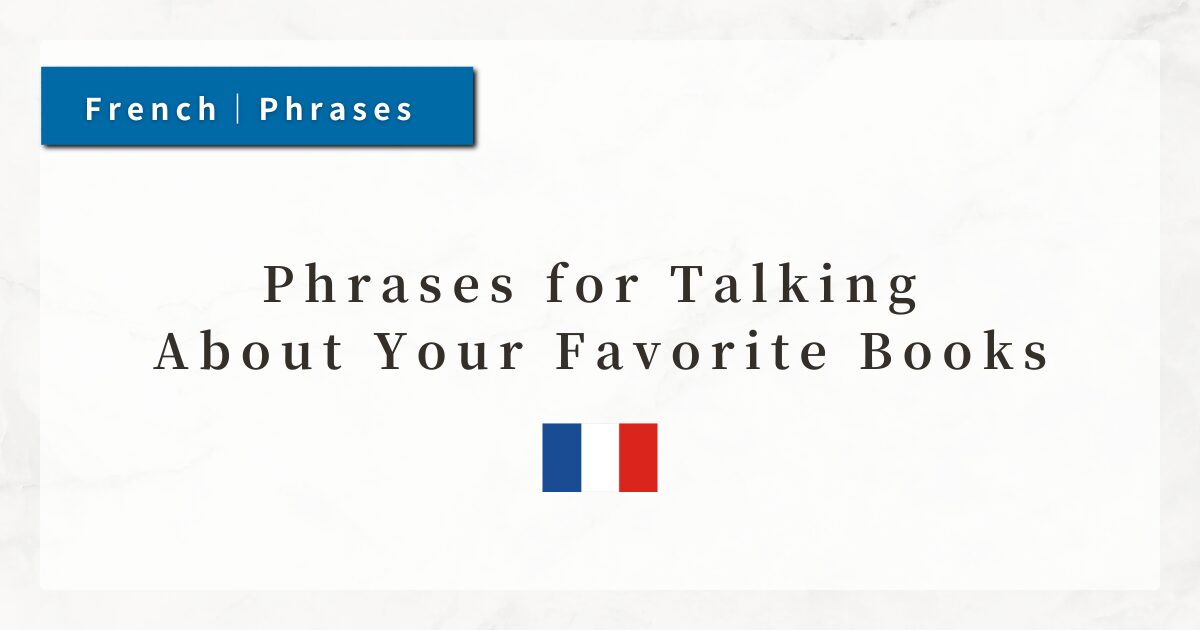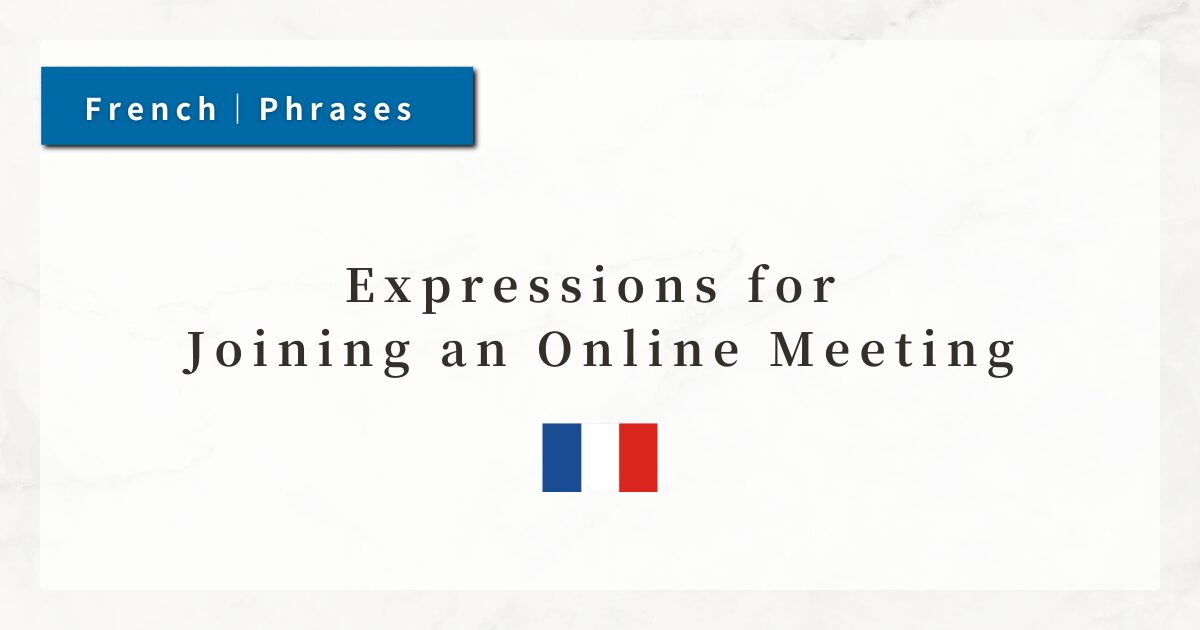#18 Phrases for Talking About Your Favorite Books|French Reading Expressions

Books are a common topic in casual conversations with friends and colleagues.
Talking about “a book you recently read,” “your favorite genre,” or “a book you want to read” can be a way to share your interests and learn about others’ ideas.
In this lesson, you will learn useful French expressions such as “I read a book,” “It was interesting,” and “What genre is it?” and practice how to talk about your reading experiences in natural conversation.
Dialogue

Tu lis souvent des livres ?
(Do you often read books?)

Oui, surtout des romans. Et toi ?
(Yes, mostly novels. And you?)

Moi aussi. J’ai lu un roman passionnant récemment.
(Me too. I recently read a very exciting novel.)

Ah bon ? C’était quel genre ?
(Really? What genre was it?)

Un polar, avec beaucoup de suspense. Je n’ai pas pu le lâcher !
(A crime novel, full of suspense. I couldn’t put it down!)

Tu me le prêtes après ?
(Will you lend it to me after you finish?)

Oui, d’accord
(Sure.)
1. Conjugation of lire and Use of Frequency Adverbs
In “Tu lis souvent des livres ?”, the verb lire (to read) is in the present tense. For the second-person singular, the form is lis.
The adverb souvent (often) indicates frequency. Adverbs of frequency are generally placed right after the verb.
- Je lis souvent le soir.
(I often read in the evening.) - Tu écoutes parfois de la musique classique ?
(Do you sometimes listen to classical music?)
2. Talking About Past Reading Experiences
“J’ai lu un roman passionnant récemment.” uses the passé composé to describe an experience of having read something.
- J’ai lu un roman passionnant récemment.
(I recently read a very exciting novel.)
The past participle of lire is lu. With the auxiliary avoir, this becomes “j’ai lu” (I read / I have read).
passionnant means “fascinating” or “thrilling.” récemment (recently) is an adverb placed at the end or beginning of a sentence.
3. Asking About Genre
This phrase is very useful when asking about the type of something.
- C’était quel genre ?
(What genre was it?)
C’était uses the imperfect form of être (it was). “quel genre” means “what kind / what genre.”
Because the book has already been mentioned, there is no need to repeat the subject.
- un roman d’amour
(romance novel) - un polar
(crime novel / thriller) - un roman historique
(historical novel) - de la science-fiction
(science fiction)
4. Expressing Reactions
“Je n’ai pas pu le lâcher !,” this idiomatic phrase means: “It was so good I couldn’t stop reading!”
- Je n’ai pas pu le lâcher !
(I couldn’t put it down!) - ne pas pouvoir
→ “to not be able to” - le lâcher
→ “to let go of it”
Thus, literally: “I couldn’t let it go,” expressing being absorbed in the book.
- C’était captivant !
(It was captivating!) - J’étais absorbé par le livre.
(I was absorbed in the book.)
Summary
- Tu lis souvent des livres ?
→ Using frequency adverbs for natural hobby questions. - J’ai lu un roman passionnant récemment.
→ Using passé composé to talk about reading experiences. - C’était quel genre ?
→ Asking about genre in casual conversation. - Je n’ai pas pu le lâcher !
→ A colloquial way to say a book was too good to put down.




